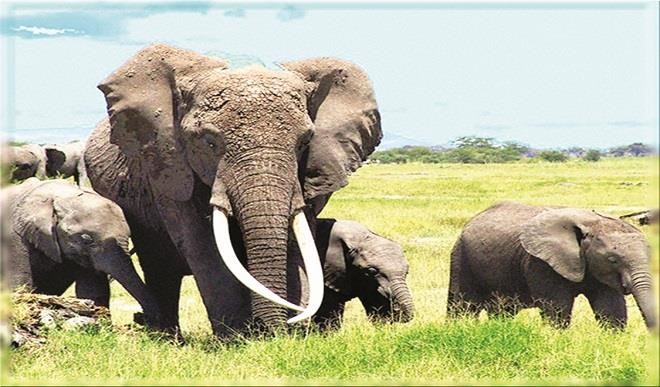Why illegal wildlife trade thrives in Africa – Don
Vice-Chancellor of Lagos State University (LASU), Prof. Olanrewaju Fagbohun has said non-implementation of existing laws and convention has aided illegal wildlife trade in Africa. This has trend has deepened the illegal wildlife trade, adding that there must be regulation and control through the use of appropriate resource management strategies and measures such as permits, standard […]


Vice-Chancellor of Lagos State University (LASU), Prof. Olanrewaju Fagbohun has said non-implementation of existing laws and convention has aided illegal wildlife trade in Africa.
This has trend has deepened the illegal wildlife trade, adding that there must be regulation and control through the use of appropriate resource management strategies and measures such as permits, standard setting and penal provisions upon violation.
Fagbohun, a Professor of Environmental Law was delivering the 16th S. L Edu Memorial Lecture on Combating Illegal Wildlife Trade in Africa: The Role of Environmental Law and Governance” organized by the National Conservation Foundation (NCF).
He noted that hundreds of millions of plants and animals are removed or poached from the wild and then sold as ornamental plants, food, pets, for zoos and breeding or to be used as work of art.
He said, “The wildlife species that are targeted range from elephants for their ivory tusks, rhinoceroses and hippo for their horns, leopards and tigers for their beautiful skins, the black bear for its bear bile, endangered birds and their eggs, reptiles such as pythons and crocodiles for their skins which are used for leather products, wild caviar, corals for aquaria, shark fins, sea turtles, gorillas and pangolins”.
The don stated that illegal wildlife is believed to be the world’s fourth most valuable illicit commerce estimated at $23bn per year.
“It is to be noted that not all wildlife trades are illegal. The problem however is that habitat loss and overexploitation have become direct threats to sustainability of many wild population and endangered species”, he said.
According to him, studies have shown that source countries of wildlife trade include some of the poorest countries with the richest sources of biodiversity.
“Africa and a number of Southeast Asian countries have been identified in confiscation data published by the European Union as the main source countries of illegal wildlife”.
According to him, poaching and illegal wildlife trafficking have reached unprecedented levels robbing local communities of their livelihoods and eroding the global commons.
He said, “What is clear is that to meet the complexity of the challenge posed by illegal wildlife trade requires a multi-pronged approach to wildlife management. Law reform is critical. Real and effective reform will not come cheap while implementation expectedly will encounter opposition of the well resourced criminal networks”.
President, BOT of NCF, Chief Phillip Asiodu and Chairman of its National Executive Council, Chief Ede Dafinone said the platform was to mobilize and foster cooperation of governments, corporate organization to develop and implement regional action plans on tackling illegal wildlife trade.
